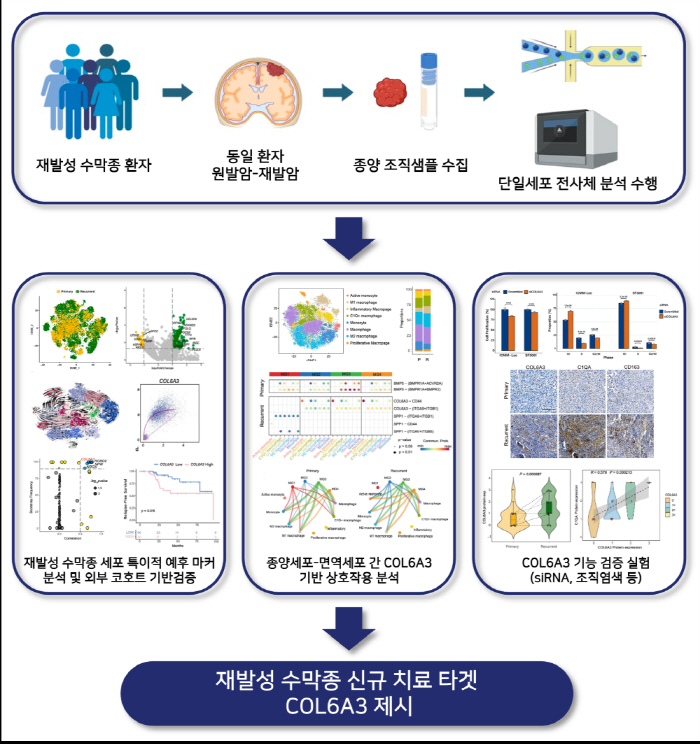Recurrent Brain Tumor Finds Treatment Clues With Precision Genetic Analysis
|
The research team analyzed the genome of recurrent meningiomas at the single cell level and systematically revealed the tumor's change process and interaction with immune cells. In particular, we demonstrated that the COL6A3 gene is a key factor in increasing the risk of recurrence and a promising therapeutic target.
Meningiomas, which account for about 30% of all brain tumors, are mostly classified as benign tumors. However, it is known that high-grade or recurrent meningioma is difficult to treat and has a poor prognosis.
Until now, there have been extremely few studies that have closely compared primary and recurrent cancers of the same patients at the single cell level to track the process of tumor change. Accordingly, Professor S Kyung-ha's team conducted single-nuclei RNA-seq by closely tracking primary and recurrent cancers of domestic meningioma patients.
As a result, it was confirmed that cell proliferation was rapid and COL6A3 gene expression was increased in recurrent meningiomas. The research team tracked changes in tumor cells over time and found that COL6A3 is more active in the last stage of change in the tumor and interacts with immunosuppressive macrophages to help the tumor become malignant through intercellular signal transmission analysis.
In addition, as a result of analyzing the correlation between the existing meningioma risk prediction indicators and COL6A3 expression, overexpression of COL6A3 further increased the risk of meningioma. In an analysis based on data from 110 meningioma patients, the patient group with large COL6A3 had a high recurrence rate.
Professor Sa Kyung-ha of the Medical Informatics Class at Korea University said, "This study is based on single-cell transcriptome analysis, which accurately analyzes patients' primary and recurrent cancers and reveals how meningiomas change and interact with the immune environment. It is significant that the treatment has provided a clue to a new treatment strategy targeting COL6A3 to limited recurrent meningiomas."
On the other hand, the findings were published in Nature Communications (IF=15.7), an international renowned academic journal, and the title of the paper is 'Long-term evolutionary path and diversity of meningioma revealed through single cell analysis (original single-cell analysis research of meningioma evolution and heterogeneity).'
Reporter Jang Jong-ho bellho@sportschosun.com
|
This article was translated by Naver AI translator.





